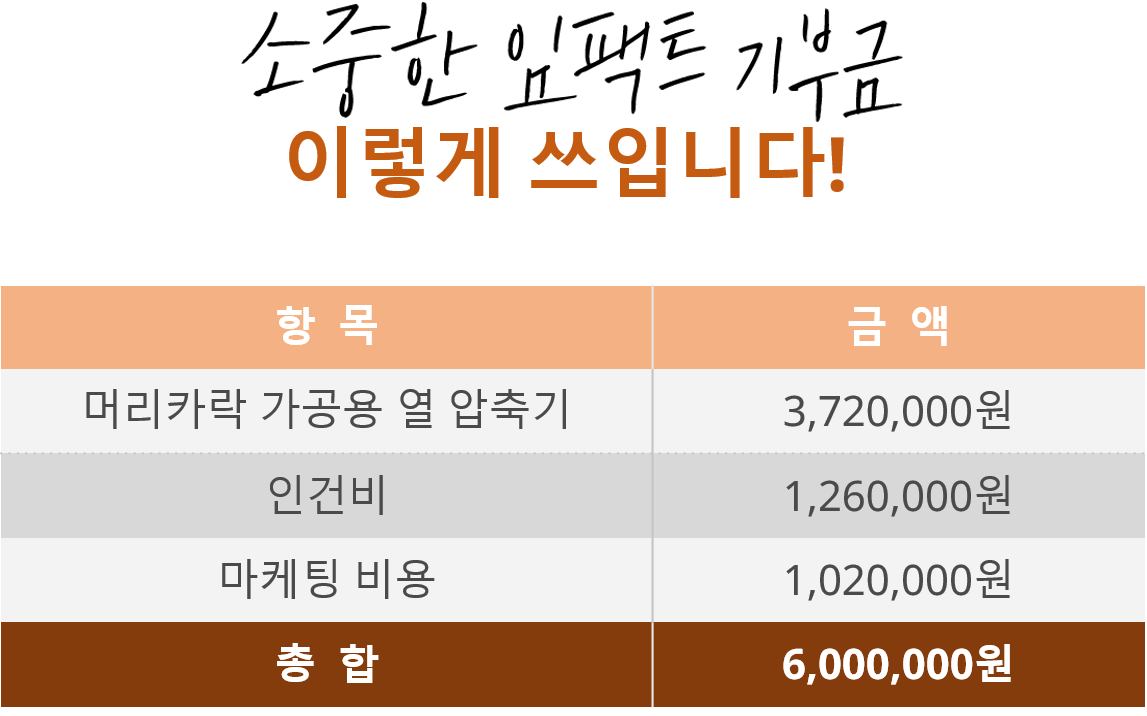
해롤드(Harlod) 씨가 버려지는 머리카락에 처음으로 관심을 갖게 된 것은 10년 전 고등학생 때였습니다. 당시 필리핀 정부에서 환경보호를 위해 일회용 플라스틱 사용을 엄격히 규제하면서 자연스레 플라스틱 대체 물질이 교내에서 큰 관심을 받았습니다. 헤롤드 씨는 선생님으로부터 대나무와 옥수수처럼 사람들이 흔히 떠올리는 플라스틱 대체 물질뿐만 아니라 해초와 머리카락 등 독특한 소재에 대해서도 배웠습니다. 특히 머리카락이 나일론이나 페트처럼 부드러운 플라스틱의 대안으로 사용될 수 있다는 점이 흥미로웠습니다. 이에 헤롤드 씨는 학교 과제로 머리카락을 조사하게 되었고 머리카락이 지닌 무궁무진한 가능성에 놀랄 수밖에 없었습니다.
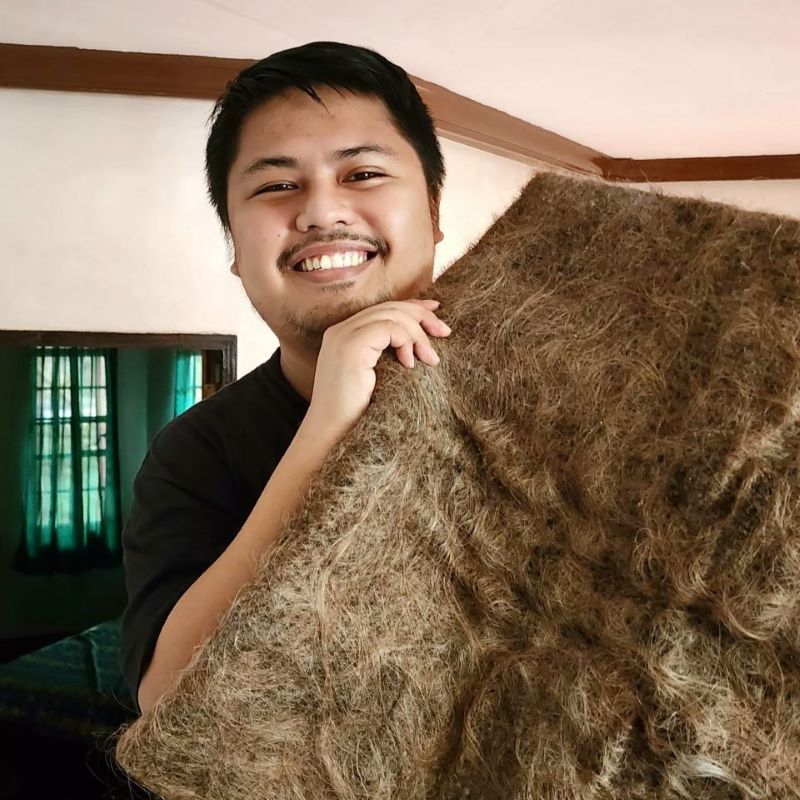
“저는 머리카락에 이렇게 넓은 활용도가 있을 줄은 전혀 몰랐어요! 머리카락의 튼튼한 구조적 특성을 이용하면 좋은 재활용 상품을 많이 만들 수 있을 것 같았죠. 친구와 머리카락을 활용한 사업을 해보자고 농담도 곧잘 했지만, 아직 고등학생이었기 때문에 막상 사업을 시작할 엄두는 내지 못했어요.”
이후 대학을 졸업한 해롤드 씨는 수도인 마닐라(Manila)에서 회사에 다녔지만, 여전히 자신의 사업을 해보고 싶다는 생각이 마음 한편에 남아 있었습니다. 그러다 코로나19로 인해 고향인 일리간(Iligan)으로 다시 돌아가게 되었습니다. 고향의 한 미용실에서 해롤드 씨는 엄청난 양의 머리카락이 버려지는 것을 보며 고등학교 시절 구상했던 사업을 다시 떠올리게 되었습니다. 2021년, 해롤드 씨는 필리핀의 자연환경을 보호하고 지역 경제를 활성화하기 위해 머리카락을 재활용하는 Capilli Trading을 시작했습니다.

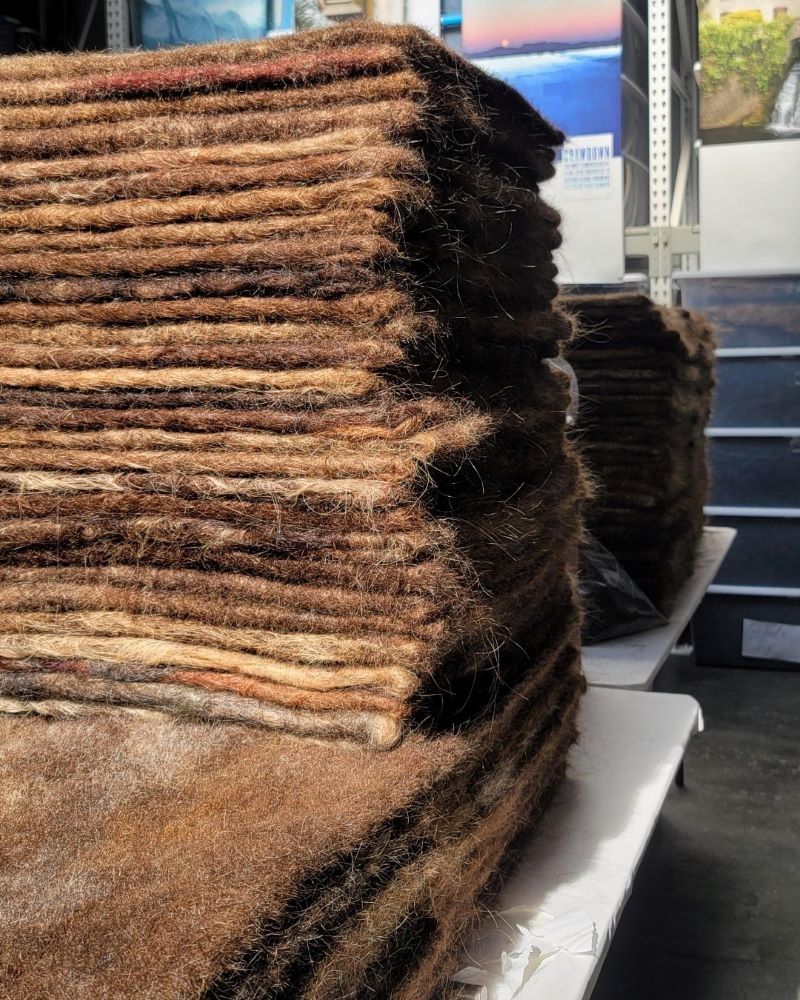
헤롤드 씨는 처음 사업을 구상하면서 많은 양의 머리카락이 강이나 땅에 버려진다는 사실에 충격을 받았습니다. 자신의 고향인 일리간은 필리핀의 북쪽에 있는 작은 도시임에도 이곳에서만 매년 66톤 이상의 머리카락이 배출되고 있었습니다. 거의 버스 5대에 맞먹는 무게의 머리카락이 매년 버려지는 것입니다. 이렇게 버려진 머리카락은 2년 후에야 분해되기 때문에 심각한 환경오염 문제로 이어지게 됩니다.
“현재 필리핀뿐만 아니라 많은 사회에서 버려지는 머리카락을 그저 쓸모없는 물질로 취급하고 있어요. 지난 20여 년간 저희는 종이와 플라스틱을 재활용해야 한다는 이야기를 끊임없이 들어왔지만, 버려지는 머리카락에 관심을 갖는 사람은 아무도 없었죠.”

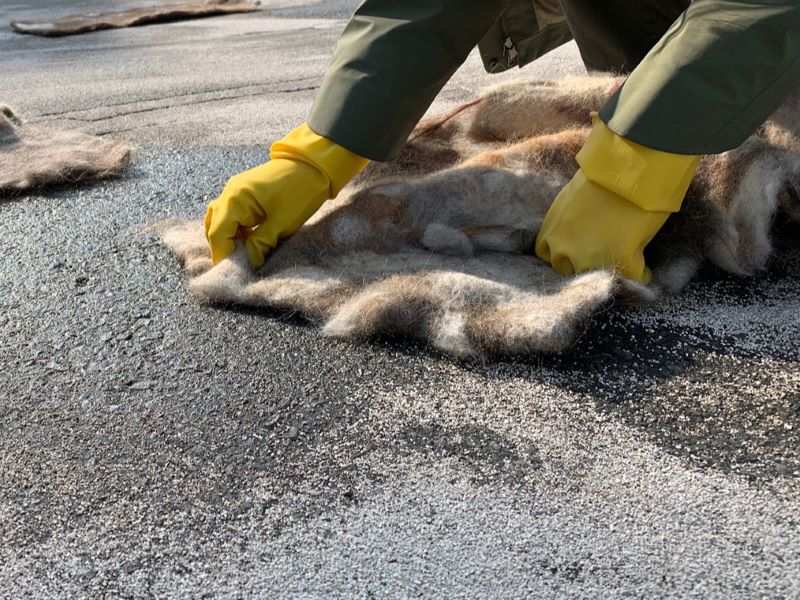
Capilli Trading은 미용실에서 버려지는 머리카락을 구매하여 지속가능한 제품으로 재탄생시키고 있습니다. 가장 대표적인 제품은 유출 사고 시 기름이나 화학 물질을 흡수하는 펠트 매트입니다. 기존 흡수 매트에 비해 머리카락 매트는 재료를 쉽고 저렴하게 구할 수 있으며 훨씬 빠르게 오염물을 흡수합니다. 그래서 많은 양의 매트가 필요한 기름이나 화학물질 유출 사고 현장에서 사람들이 부담 없이 사용할 수 있습니다.
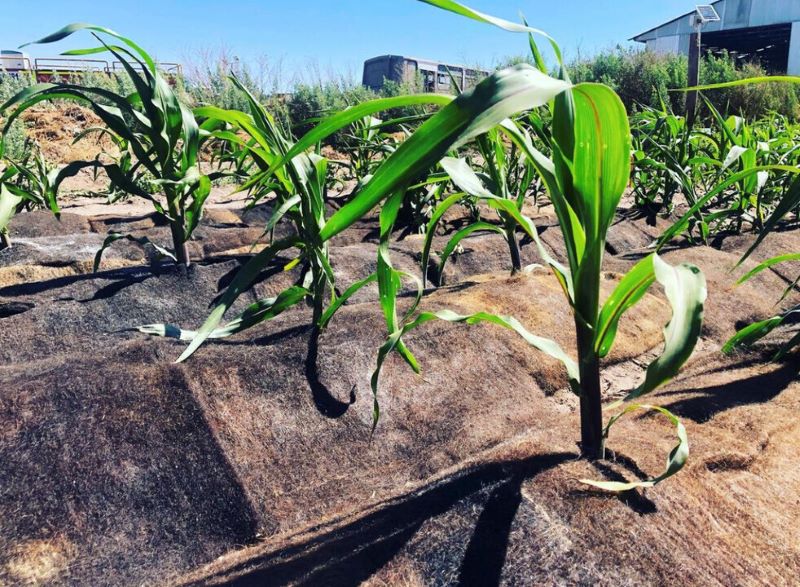
최근에는 식물과 농업에 사용할 수 있는 머리카락 매트도 제작하고 있습니다. 흙 위를 매트로 덮음으로써 자외선으로 인한 과도한 수분 손실을 방지합니다. 더불어 머리카락에 포함된 질소와 케라틴 등의 영양분이 식물의 성장에 도움을 줍니다. Capilli Trading은 앞으로도 환경에 도움이 되는 다양한 머리카락 재활용 상품들을 개발할 계획입니다.

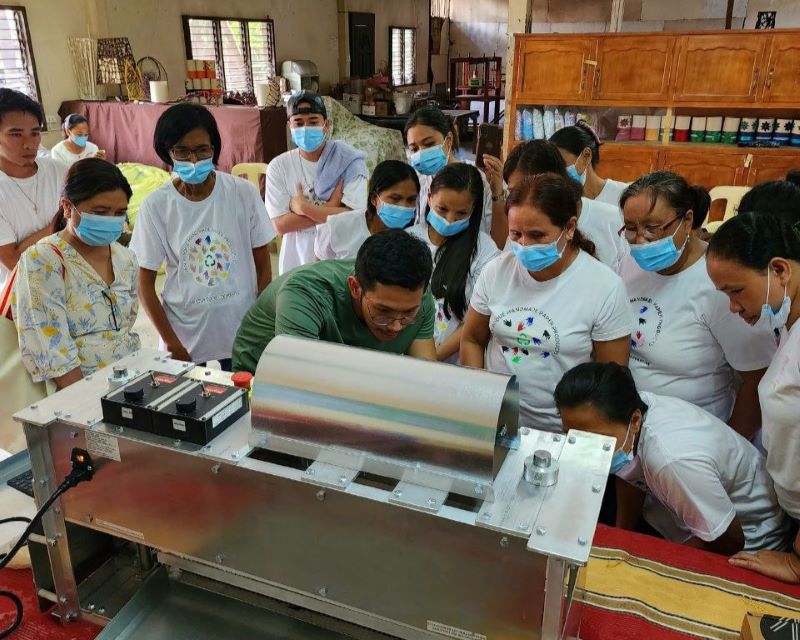
Capilli Trading은 환경 보호뿐만 아니라 지역 사회의 경제 활성화에도 이바지합니다. 먼저, 지역 사회의 공동체인 San Roque MPC 소속의 여성들을 고용하여 함께 일하고 있습니다. 이들은 미용실에서 머리카락을 수거하고 유통하며 제품을 직접 제작합니다. 여성들은 대부분 수입이 없는 전업주부이기 때문에 Capilli Trading에서 일하며 가정에 금적전인 보탬이 되고 있습니다.
또한, Capilli Trading은 일리간 지역의 미용실과 협력하여 미용사들에게서 머리카락을 구매하고 있습니다. 필리핀의 미용사들은 필리핀의 평균 월급인 약 105만 원의 절반에도 못 미치는 약 47만 원을 밖에 벌지 못합니다. 이들은 버려지는 머리카락을 Capilli Trading에 판매함으로써 추가적인 수익을 얻게 되었습니다. 이처럼 Capilli Trading은 수입이 적은 지역 사회의 구성원들이 적극적으로 사업에 참여하고 일할 수 있도록 독려하고 있습니다.

“Capilli Trading은 원래라면 버려질 뿐인 머리카락을 통해 지역 사회 전체가 부가적인 수익을 얻을 수 있도록 하고 있어요. 그뿐만 아니라 사람들이 서로 교류하며 사회적으로 긍정적인 관계를 구축해 나가요. 저는 이처럼 모든 사람들이 남들에게 쓸모없다고 여겨지는 주변의 물건들로부터 가치를 발견할 수 있으면 좋겠어요.”
Capilli Trading은 앞으로도 머리카락을 재활용하여 필리핀의 환경을 보호하고 지역 사회의 경제 활성화에 앞장설 것입니다. 이와 더불어 더 많은 사람들을 고용하며 지역 내에서 순환하는 사회적, 경제적 가치를 창출하고 싶습니다. 해롤드 씨는 점차 다른 도시의 미용실들과도 협업하여 필리핀 전역으로 긍정적인 영향을 넓힐 것입니다. 더 깨끗한 필리핀을 꿈꾸는 Capilli Trading의 미래에 함께 해주세요!

